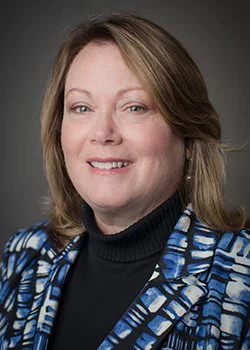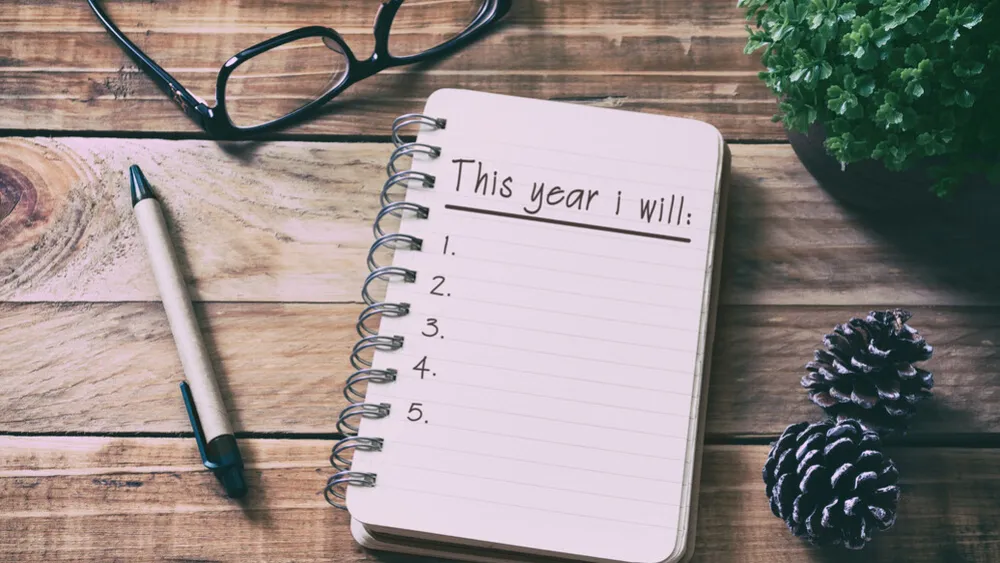
Mental Health
This new year, focus on goal setting and self-care
Published: Dec. 16, 2024


Q&A with Ellen McElderry, LIMHP, LADC, program manager for the Methodist Hospital Community Counseling Program.
What’s your take on New Year’s resolutions?
New Year’s resolutions can be very effective! New Year’s symbolizes a new start and time to try something different, and it can motivate us to pick up healthy habits we may have let go by the wayside. It’s a refresh button people can lean into for goal setting. The key is to remember that resolutions can start anytime. If you struggle to keep one, press refresh and start over!
Is there a better way to approach 2025?
Every new year is an opportunity for growth. Focus on the day – the here and now – as each new day builds on the one before to create your future. Look forward with positive energy and plans to take action in creating a healthy life where you thrive. Use 2025 for goal setting, and look toward the direction you want to go.
Why is self-care so important?
There’s always been a public focus on the benefits of physical well-being, exercise and diet. Now there’s more acknowledgement that you can’t have overall wellness and good health without including mental health. The self-care movement addresses holistic well-being to include physical and mental wellness. The COVID-19 pandemic negatively affected people physically and mentally, but on the upside, I believe it has motivated us to understand the importance of self-care in helping us to be holistically healthy and thrive. To be healthy, we need to eat right, exercise, get an annual physical, go to the dentist regularly and de-stress. Self-care is part of overall health care.
What role does nutrition play in mental health?
Eating better quality food improves our bodies’ performance and our mental wellness. The holidays are often celebrated with foods that are high in sugar and carbohydrates, along with an increase in alcohol consumption. In the moment, we enjoy the temporary sugar high, but the crash afterward is damaging to our body and mood. Excessive unhealthy food consumption can result in feeling sluggish, poor sleep, irritability, foggy thinking and difficulty concentrating. It’s important to balance out healthy eating during the holidays, make time for exercise and get fresh air to ensure that your spirits stay bright.
How can a counselor help with self-care and mental health?
A counselor or therapist can provide an objective perspective and identify things we don’t see ourselves. Family and friends are sometimes too close to objectively tell us what we need to hear, not trained on how to guide us or unable to see an issue’s root cause. A counselor’s role is to help clients with clinical interventions that are proven to be effective and impactful. A licensed counselor has specialized training and education to perform a clinical service and help a client with growth and healing.
How do you know it’s time to reach out for help?
When you feel stuck and your normal response is no longer helping, it’s time to do something different – find a counselor. If you’re struggling to complete your day-to-day tasks, have trouble sleeping, are feeling fatigued or are experiencing relationship problems, remember that you can have a better quality of life. We all have bad days, but if you find that the bad days are turning into months, it may be a sign of a mental health issue.
What’s your advice for people making common resolutions – like losing weight or quitting a habit?
A good starting point is to honestly and clearly identify what you can and can’t control. For example, you can’t control what sweets people are bringing to the office, the weather or other people’s negative comments. But you can have your own healthy snacks available, research exercises that can be done inside and have a prepared response for others when you’re feeling stressed. You can make a decision on how to respond to what life brings your way.
The Methodist Hospital Community Counseling Program’s licensed mental health practitioners help clients add new life skills, discover strengths, enhance parenting skills, grow relationship and learn new ways to cope. Counseling services are offered to students in each middle school, high school and alternative program in Omaha Public Schools and to community members at locations across Omaha. Financial assistance is available for those who qualify. No one will be turned away due to an inability to pay. The program is made possible thanks to generous donor support through Methodist Hospital Foundation.
More Resources
- Read more from the fall/winter 2024 issue of The Meaning of Care Magazine.
- Learn more about the Methodist Hospital Community Counseling Program.
- Read more Methodist articles focused on mental health.

